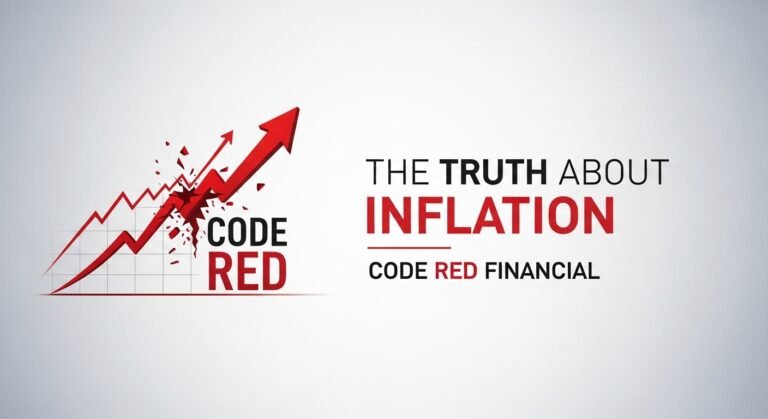
Understanding the Hidden Toll of Financial Strain
It has been said that debt can ruin relationships, and as a matter of fact, it has. Whether it’s the weight of unpaid bills, the constant pressure of looming credit card balances, or the mounting stress of student loans, financial burdens don’t just affect the wallet — they seep into every aspect of life, including our mental health and relationships. While many focus on the financial side of debt, there’s an often overlooked yet equally significant burden that debt places on the mind — the mental debt burden.
Mental debt represents more than just numbers and interest rates; it’s the psychological strain that debt can place on individuals and families. When I sat down to write this article, I could not help but pondered about the myriads of people I have had either a business relationship with from my time in banking or other professional capacity. or the friends, co-workers, acquaintances or even family members I have seen torn apart by the often-devastating impact of debt burden. So, let us delve into what it is, how it impacts our lives, and how we can work toward shedding this invisible yet overwhelming weight.
What is Mental Debt?
The psychological stress and emotional toll caused by the financial obligations one faces. Unlike traditional debt, which is measured in terms of money owed, this sort of debt is quantified in terms of emotional and cognitive energy consumed by the constant thoughts of financial strain. It’s the anxiety of not knowing how bills will be paid, the embarrassment of credit card debt accumulating, and the deep-rooted fear of the future. This constant worry doesn’t just affect our finances — it seeps into our relationships, careers, and overall well-being.
In many ways, it can be more debilitating than its financial counterpart. While money can be earned, invested, or borrowed to manage debt, this doesn’t have an easy solution. The anxiety, self-doubt, and stress that accompany financial struggles are often more challenging to overcome, leaving individuals in a constant state of emotional turmoil.
The Silent Impact of on Relationships
Financial stress is one of the most common factors contributing to relationship breakdowns. Research suggests that money issues are a major source of conflict for couples, leading to arguments, resentment, and sometimes even divorce. Debt, in particular, can be a silent killer of relationships. While one partner may be drowning in debt, the other may feel left out, frustrated, or helpless.
The emotional toll of debt doesn’t just affect the person with the financial burden but also their loved ones. Partners may argue over how to manage finances, causing a rift that weakens the relationship. Trust may erode, as one partner may feel embarrassed or ashamed to discuss the extent of their debt, leading to secrecy and further distance. Over time, this creates a toxic cycle of guilt, frustration, and resentment that becomes harder to break.
Beyond romantic relationships, this psyche can strain friendships and family dynamics as well. When financial struggles take up most of an individual’s mental space, they may withdraw from social events, avoid important family gatherings, or feel disconnected from those they care about. The stress of mental strain can also lead to feelings of isolation, as people struggle to maintain their relationships while dealing with their personal financial issues.
How It Affects Mental Health
Mental burden can wreak havoc on mental health. The constant pressure of managing debt can lead to anxiety, depression, and even panic attacks. Studies have shown that individuals who struggle with financial stress are more likely to experience mental health issues than those who have a more stable financial situation.
The stress caused can trigger a cascade of negative emotions. The constant worry about paying bills or keeping up with debt payments can lead to feelings of hopelessness and helplessness. This can cause a cycle of stress and avoidance, as individuals may put off dealing with their finances out of fear or shame. Over time, these emotions can spiral, leading to more severe mental health issues like depression, insomnia, or even substance abuse.
Furthermore, the cognitive load associated with managing debt can impair decision-making and problem-solving abilities. When we are constantly preoccupied with thoughts of financial worry, it becomes harder to focus on other aspects of our lives, such as work, family, or personal goals. This distraction can result in decreased productivity, poor performance at work, and a lack of motivation to take action to improve the situation.
The Toll on Physical Health
While the mental and emotional effects are widely recognized, the physical toll it takes is often underestimated. Chronic stress caused by financial anxiety can manifest in physical symptoms, including headaches, fatigue, digestive issues, and high blood pressure. Over time, the constant state of stress can weaken the immune system, making individuals more susceptible to illness.
Moreover, this chaos of the mind can lead to poor lifestyle choices, such as neglecting exercise, unhealthy eating habits, or a lack of sleep. When individuals are overwhelmed by financial pressure, they may forgo self-care practices, such as working out, eating well, or getting enough rest, as they focus all their energy on managing their debt. This neglect of personal well-being can further exacerbate the physical effects of stress.

The Shame and Stigma of Debt
One of the most challenging aspects of is the shame and stigma associated with financial struggles. Debt is often viewed as a personal failure or a sign of irresponsibility, leading people to feel embarrassed or ashamed to talk about their financial issues. This shame can prevent individuals from seeking help or discussing their challenges with others, further isolating them in their struggle.
The societal pressure to appear financially successful can exacerbate these feelings. Social media often portrays an idealized version of wealth and success, making those in debt feel inadequate or inferior. The fear of being judged can prevent people from seeking the support they need, leaving them mentally trapped.
Overcoming the Burden
While the burden can feel overwhelming, it is possible to regain control and take steps toward emotional and financial healing. Here are a few strategies to help overcome the psychological impact:
1. Acknowledge and Accept the Situation
The first step in overcoming is to acknowledge the situation and accept that it’s okay to be in debt. Many individuals avoid facing their financial reality because of fear or shame, but addressing the issue head-on is the only way to begin the process of healing. It’s important to remind yourself that debt does not define you as a person — it’s simply a financial challenge that can be addressed with time and effort.
2. Open Communication with Loved Ones
If you are in a relationship, whether romantic or familial, it’s crucial to have open and honest communication about your financial situation. While it may be uncomfortable at first, sharing your concerns and working together as a team can help alleviate the mental burden of debt. Talking about your struggles can also reduce feelings of shame and isolation, allowing you to receive the support you need.
3. Seek Professional Help
Sometimes, the burden is too much to handle on your own. In these cases, seeking professional help from a financial advisor or mental health professional can make a significant difference. A financial advisor can help you create a manageable plan for paying down your debt, while a therapist can help you address the emotional and psychological effects of debt. Listen, I understand the anxiety this sometimes presents and the chaotic minefield of the brain attempting to navigate the emotional traffic jam of fear we often feel when going through various life changes—or sometimes nothing at all. I have been there, lived it, and still find myself at times with anxiety that isn’t based on the reality I live today.
4. Focus on Self-Care
It’s easy to neglect your physical and emotional well-being when you’re overwhelmed by financial stress, but taking care of yourself is essential. Practice self-care by getting enough sleep, eating nutritious food, exercising regularly, and engaging in activities that bring you joy and relaxation. Taking small steps to improve your well-being can help reduce the mental and physical effects of stress. I have been very active virtually my entire life—ran track throughout my school years (100m & 200m) and practiced various martial arts for almost 30 years. However, in the past few years, I have become less active and have lately recognized the deleterious impact it is having not just on my physique, but most importantly, on my mental well-being. So, while we are not all the same, there are more than enough peer-reviewed studies highlighting the benefits of staying active. Alongside maintaining good eating habits and other self-care methodologies, which often yields positive outcomes.
5. Create a Financial Plan
Having a clear financial plan can help you regain a sense of control and reduce anxiety. Break down your debt into manageable steps and set realistic goals for paying it off. Celebrate small victories along the way to keep yourself motivated.
There is a Way Out
The burden is a silent yet powerful force that affects millions of people worldwide. It goes beyond financial stress, infiltrating our relationships, mental health, and physical well-being. So, understanding the effects and taking proactive steps to address it is crucial for regaining control over your life and future. By acknowledging the situation, communicating openly with loved ones, seeking professional help, practicing self-care, and creating a solid financial plan, you can begin the journey toward mental and financial freedom. The weight may be heavy, but with the right support and strategies, you can lighten the load and reclaim your peace of mind.
Disclaimer: This article is for informational purposes only and does not constitute financial or investment advice. Consult with a qualified 1 financial advisor or tax professional before making any decisions about your investments or retirement accounts







